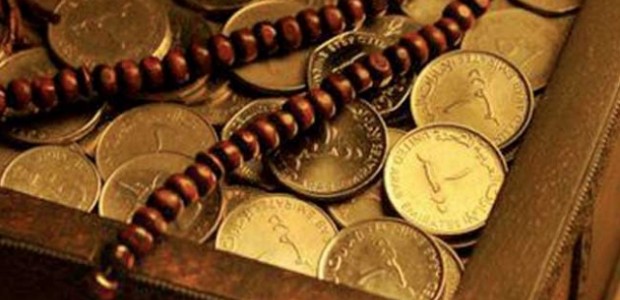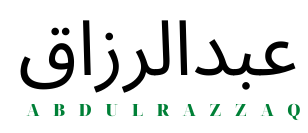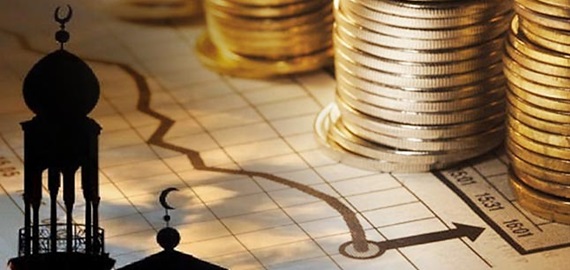
Fatwa On Islamic Banking
May 27, 2021
ISLAMIC BANKING – CHEATING ALLAH – By Sarakenos
May 27, 2021Is Islamic Banking Really Islamic?

Cheating God: Islamic Banking
One of the major sins that Judaism, Catholicism, and Islam take seriously is the sin of usury (i.e. taking interest on loans of money). The Torah, Gospel, and Quran are unequivocally clear on this matter: Exodus (22:25), Leviticus (25:25-37), Deuteronomy (23:19-21), Matthew (5:17-18), Luke (6:35), Quran (2:275-280, 3:130, 4:161, 3:39).
Moreover, Aristotle (384 BC – 322 BC), known as the first teacher among Muslim scholars and philosophers of the Islamic Golden Age, referred to usury as unnatural and immoral. In the Islamic Golden Age, St. Thomas Aquinas (1225-1274), the leading authority of the Catholic Church till this day, along with his teachers: Maimonides (1135-1204), the leading authority on Jewish Law and philosophy until today (appointed as one of Salahuddin’s court members and physicians), Ibn Rushd (1126-1198), one of the greatest philosophers and most influential figures in Europe’s Renaissance (appointed as supreme judge in Seville, Cordoba, and Morocco); all wrote extensively on the evils of usury on mankind.
Usury, in Islamic Shariah, is defined as money made in excess for no work done or entrepreneurial risk taken. In modern terms: interest. St. Thomas Aquinas compared usury to selling time, and time is not a good or service to be sold.
Islamic Banking
We know that banks make their money by lending money and collecting interest. That is the whole purpose of commercial banking. An Islamic bank, however, figured out a way to make that money by playing a little game: Instead of lending money and collecting it back with interest, the bank engages in business contracts with the borrowers, for a profit.
Example 1
Samir wants to buy the new Audi A8, selling at $75,000. He can take out a loan from a commercial bank. Samir then owns the car “now,” and pays the loan back in small monthly installments over a period of six years, with an annual interest (may include collateral). When Samir pays the last installment, he will have paid the original $75,000 plus the accumulated interest, totalling up to $100,000. Or…
Samir can go to an Islamic bank. The bank purchases the car for him at full price, and Samir agrees to buy the car from the bank at the new price of $100,000, paying that amount in small monthly installments, interest-free! The ownership of the car is fully transferred to Samir upon paying his last installment. Should he be unable to pay the amount in full, the bank retrieves the car as collateral. Certified Islam refers to this form of transaction as murabaha, meaning profiteering, which is of course 100% halal.
Example 2
Samir wants to start a business (for profit). He goes to a commercial bank and explains his business idea with a detailed plan (including cost and revenue estimates). If the bank approves the feasibility of the project, the bank will give Samir a loan to be paid back, with interest, in installments. Or…
Samir goes to an Islamic bank and explains his business idea with a detailed plan (including cost and revenue estimates). If the Islamic bank approves the feasibility of the project, the Islamic bank will sign an agreement with Samir, in which they establish a partnership, known as Mudaraba (also means profiteering). In this contract, the bank offers the capital, and Samir offers the work. But then both Samir and the bank share the profits (each gets the percentage of the profit agreed upon in the contract).
In the end, both types of banks end up making money without putting any work or risk. A commercial bank calls it interest, while an Islamic bank calls it profit. In fact, the idea was so lucrative that HSBC established an Islamic banking subsidiary, in 2003, known as HSBC Amanah, with their slogan (Commitment to the highest Sharia standards).
This system of Islamic banking was only developed in the mid-twentieth century. In 1973, upon the official declaration of the Muslim countries’ finance ministers’ first conference at the Organization of Islamic Conference (OIC), the first Islamic banks began operations in Jeddah and Egypt (Islamic Development Bank) and Dubai (Dubai Islamic Bank) in 1975. As of 2009, Islamic banks’ assets combined (including Iranian banks who joined the game in 1980) are estimated at 400 billion halal dollars.
Fishing On Sabbath
Islamic Banking brings to mind the story of The People Of The Sabbath from the Islamic tradition, when a small group of Jews in the coastal village of Ayla on the Red Sea cheated God. According to the story, the fish swam near the shore on Saturdays (Jewish Sabbath), the only day they weren’t allowed to do any work, including fishing. But then on all other days, there was barely any fish in the sea. The majority of these Jewish villagers, the true believers, knew that it was a test from God. Thus, they persevered and continued to observe the Sabbath. But then a small group figured out a smart way to circumvent the Law, without upsetting God: They set up their fishing nets on Fridays, and collected their plentiful catch on Sundays. God’s punishment was severe: the Shabbat violators were disfigured into apes.
Whether this story is real or metaphor (still debated among Muslim scholars) is irrelevant. What matters is the moral of the story: no one can fool God by circumventing his rules. He knows exactly what they’re doing

